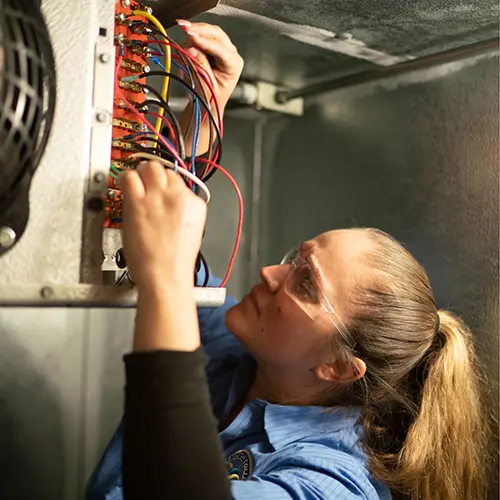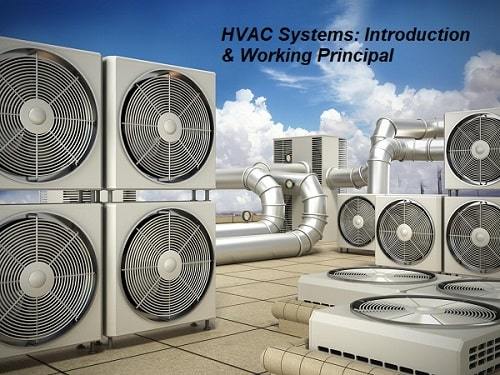An Extensive Take A Look At Heating And Cooling Services and Their Influence On Energy Effectiveness and Price Financial Savings
With technological developments like smart thermostats and high-efficiency components, the possibility for enhancing system performance is vast. As we discover the detailed connection between HVAC systems and functional expenses, including the change in the direction of eco friendly choices, the question arises: exactly how can these techniques be properly implemented to optimize both economic and eco-friendly advantages?

Value of Heating And Cooling Equipments
cooling and heating systems are an essential element of modern structures, playing a critical function in maintaining comfy and healthy and balanced indoor environments. These systems, incorporating ventilation, home heating, and air conditioning, are essential for managing temperature, moisture, and air top quality, consequently guaranteeing the well-being of occupants. Reliable cooling and heating systems contribute considerably to creating an optimum indoor climate, which is important for both property and commercial rooms.
In industrial structures, heating and cooling systems are integral to giving a risk-free and productive atmosphere. By regulating indoor climate problems, these systems help stop the development of mold and the spread of air-borne contaminants, therefore protecting the wellness of employees and clients. Additionally, in property settings, heating and cooling systems boost living conditions by providing constant thermal convenience and enhancing indoor air top quality, which is important for general health.
Additionally, the layout and maintenance of heating and cooling systems have a straight influence on power consumption and operational costs. Effectively designed and maintained systems can substantially minimize power use, bring about reduced utility bills and a smaller carbon footprint. The efficiency of these systems therefore plays a vital function in promoting sustainability and power preservation within buildings, highlighting their importance in the modern-day building landscape.
Breakthroughs in Heating And Cooling Modern Technology
Advancement in a/c innovation is reinventing the means structures handle indoor climates, ushering in a new era of efficiency and control. Recent advancements have actually concentrated on maximizing power usage while improving user comfort. One noteworthy development is the assimilation of smart thermostats, which utilize expert system to discover occupancy patterns and adjust temperature levels appropriately, reducing unneeded energy usage.
Variable Refrigerant Flow (VRF) systems represent an additional considerable leap forward. These systems permit for exact temperature control in different areas of a building, boosting comfort and reducing power waste. VRF technology is specifically valuable for huge industrial rooms, using flexibility and scalability.
In addition, the introduction of Internet of Points (IoT) devices has transformed cooling and heating systems right into interconnected networks qualified of real-time data collection and evaluation. This connection allows predictive maintenance, making sure systems operate at peak effectiveness and reducing unanticipated downtime.
In addition, improvements in products and layout, such as using high-efficiency coils and compressors, have actually improved total system efficiency - Heating Contractor. The fostering of ecologically pleasant cooling agents also highlights the industry's dedication to sustainability
These technical technologies are critical in decreasing operational prices and environmental impact, setting brand-new criteria for building climate management.
HVAC Maintenance and Effectiveness
Making sure optimum performance of heating and cooling systems prolongs beyond technological innovations; it additionally rests on reliable maintenance practices. Regular maintenance is essential for sustaining effectiveness, minimizing power intake, and expanding the life expectancy of a/c systems. The key objective is to ensure that all parts function at their peak potential, therefore decreasing energy wastefulness and keeping regular interior convenience levels.
Regular upkeep jobs, such as cleansing or changing air filters, inspecting refrigerant levels, and examining ductwork for leaks, are vital for stopping unneeded stress on the system. Filthy or blocked filters can obstruct airflow, creating the system to function more challenging and take in more energy. Similarly, poor cooling agent levels can decrease cooling down efficiency, leading to greater functional costs.
Additionally, routine inspections by qualified specialists can recognize possible problems before they rise right into expensive repair services or system failures. These examinations usually include examining electric links, adjusting thermostats, and making sure the overall honesty of a knockout post the HVAC system. By dealing with small issues early, organizations and homeowners can stay clear of unforeseen break downs and enhance power efficiency.
Cost-efficient Cooling And Heating Solutions
For those looking to obtain one of the most out of their air, home heating, and ventilation conditioning systems without damaging the financial institution, discovering economical HVAC remedies can make a considerable difference. One instant measure is to buy programmable thermostats, which enable users to establish certain temperatures for various times of the day, enhancing energy usage and reducing unnecessary usage. By automating temperature changes, property owners can accomplish significant cost savings on power bills.
Normal upkeep is another important element of affordable a/c administration. Making certain that filters are cleansed or replaced routinely, ductwork is secured, and units are serviced by specialists can avoid expensive repair work and enhance system long life. Precautionary maintenance not just maintains system efficiency however additionally helps in preventing unforeseen breakdowns that can result in pricey emergency repairs.
Additionally, retrofitting existing systems with energy-efficient elements, such as variable rate electric motors or high-efficiency compressors, can be a sensible investment. These upgrades boost operational performance, decrease power use, and can often be applied at a fraction of the expense of a complete system replacement.
Environmental Effect Decrease
Minimizing the ecological influence of heating and cooling systems is important in today's quest of lasting living. HVAC systems are significant factors to energy intake, accounting for nearly 40% of power use in industrial buildings. This power demand usually relies upon nonrenewable fuel sources, bring about greenhouse gas emissions and ecological destruction. Transitioning to more reliable systems, such as those making use of renewable resource resources, can significantly minimize these impacts.
Technical improvements in HVAC design and procedure, consisting of the assimilation of smart thermostats and energy-efficient heatpump, are crucial in reducing carbon footprints. These developments permit enhanced energy usage, decreasing wastefulness and enhancing total system performance. Additionally, taking on regular upkeep methods makes sure a/c systems run at peak performance, more curtailing unneeded energy intake.
Additionally, making use of eco-friendly refrigerants is crucial, as typical cooling agents, like CFCs and HCFCs, have been terminated due to their ozone-depleting residential or commercial properties. Modern choices, such as hydrofluoroolefins (HFOs), deal decreased environmental risks, aligning with global ecological protocols. By embracing these lasting techniques, cooling and heating solutions can play a transformative function in lowering ecological effects, promoting energy efficiency, and cultivating an extra sustainable future.
Final Thought

Moreover, the layout and maintenance of HVAC systems have a direct impact on energy consumption and functional expenses. Regular upkeep is crucial for sustaining effectiveness, decreasing power intake, and expanding the life period of Heating and cooling systems. HVAC systems are significant factors to power usage, accounting for nearly 40% of power usage in commercial structures. In addition, embracing regular upkeep practices makes certain Cooling and heating systems operate at peak performance, more curtailing unneeded power usage.
The transition to eco friendly HVAC chisholm heating and air systems additionally pop over to these guys promotes and reduces functional costs sustainability. (Heating Contractor)
Comments on “Commercial HVAC Installation Providers for Large-Scale Air Conditioning Equipments”